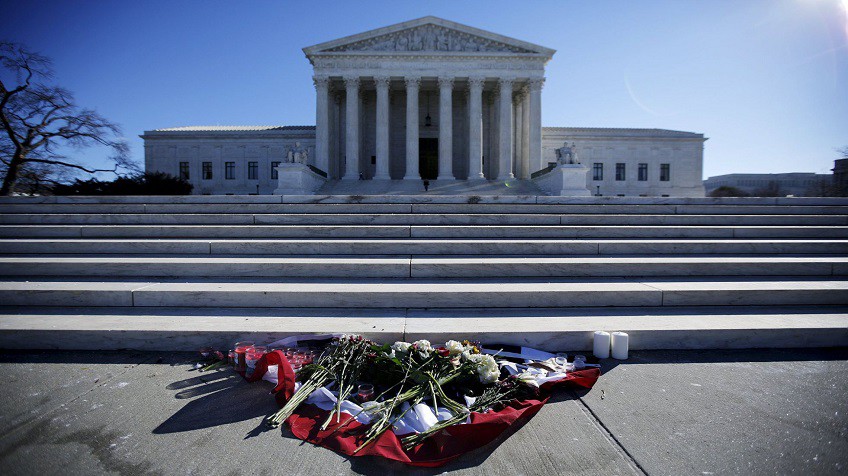Lutherans can read the times through the lens of the theology of the cross:
But it’s an entirely different question whether churches should be participating in state-run programs like that one — when they consider their own self-interest.
Secularists worry that when federal or state money goes to churches, to support either charities or efforts like the one at stake in Trinity Lutheran Church of Columbia v. Comer, the state is in effect promoting religion. But there’s growing evidence that the influence goes the other way: State support causes churches to become more secular, and generally to weaken.
In short, believers should be wary of the freedom the Court has just affirmed.
Evangelicals don’t:
In their decision on the Trinity Lutheran case the Court answered these questions, ruling that the government can’t discriminate against religious organizations and exclude them from receiving a generally available public benefit simply because they are religious.
“The Court’s decision is good for kids and good for religious liberty,” says Hannah Smith, senior counsel at Becket Law, a non-profit religious liberty law firm that filed a friend-of-the-court brief on the school’s behalf. “Trinity Lutheran was simply asking that the government play fair, treat churches equally, and help the preschool make its playground safer for children. Today’s decision does just that.”
Neither do Roman Catholics:
Most court watchers expected the Court (with Gorsuch now on the bench) to side with the religious school on a narrow 5-4 ruling. But, the Supreme Court decided 7-2 in favor of Trinity Lutheran!
Experts agree the decision could pave the way for upholding the constitutionality of other state programs (like school vouchers) where religious groups provide a service for the public benefit.
Chief Justice John Roberts writing for the majority stated: “The exclusion of Trinity Lutheran from a public benefit for which it is otherwise qualified, solely because it is a church, is odious to our Constitution.”
NOTEWORTHY: Justice Neil Gorsuch actually wrote his own opinion in the case (joined by Justice Thomas). And the newest Justice noted that the First Amendment “guarantees the free exercise of religion, not just the right to inward belief (or status)” (emphasis his).
We at CatholicVote have been making precisely this point for years. Religious exercise isn’t just about privately holding a religious belief or attending religious services. You may recall President Obama tried to quarantine our constitutional rights by defining this broad freedom as merely the “right to worship”.
Haven’t these people heard that appearances are deceptive, that praying in public, fasting, or giving alms may not be all they seem to be.

